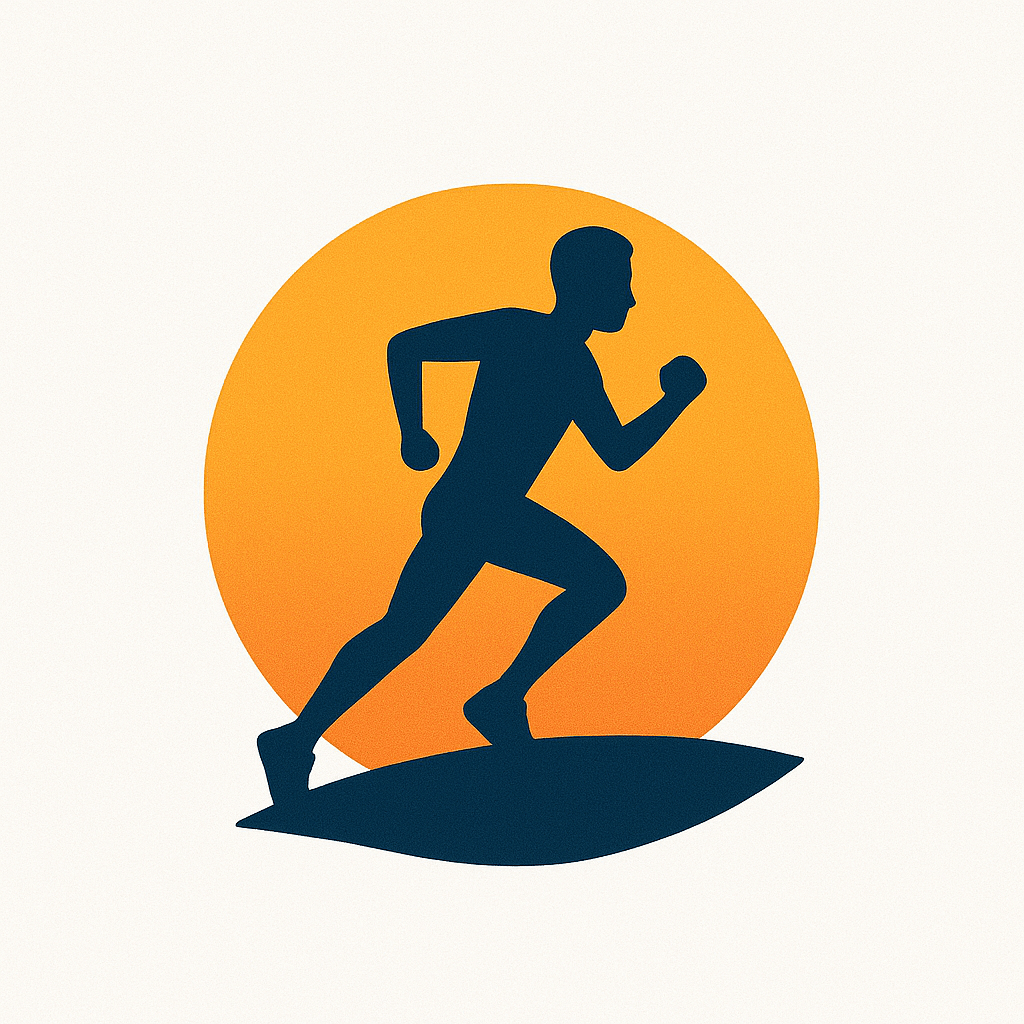The Runner’s Diet: What to Eat to Go the Distance and Recover Stronger
Whether you’re lacing up for your first 5K or logging weekly miles in marathon prep, your nutrition plays a huge role in how well you run, how fast you recover, and how strong you stay. I recently came across a fascinating article from Johns Hopkins University that explored how the right foods can enhance not just endurance and recovery, but also mental clarity, bone strength, and even immune function in runners. It highlighted how many athletes underestimate the role of micronutrients — like vitamin D, calcium, and iron — in supporting their performance and preventing injury. It really drove home the idea that running isn’t just about willpower and training plans — it’s about fueling your body like the high-performance engine it truly is.
Running is more than just pounding pavement or hitting the trails — it’s a full-body effort that demands proper fuel. What you eat before, during, and after your run directly affects your performance, recovery, and long-term health. Let’s dive into what makes an ideal runner’s diet — with practical tips and science-backed advice for joggers and seasoned racers alike.
Fueling Your Stride: What Runners Should Eat Daily
A balanced diet tailored to support an active lifestyle is the foundation for running success. Here’s what your plate should consistently feature:
- Colorful fruits and vegetables: Packed with antioxidants, vitamins, and minerals, these should make up a generous portion of your meals.
- Lean protein sources: Think grilled chicken, fish, eggs, legumes, lentils, and tofu — essential for muscle repair and recovery.
- Heart-healthy fats: Avocados, olive oil, seeds, and nuts support brain function, reduce inflammation, and offer long-lasting energy.
- Complex carbohydrates: Your primary fuel. Brown rice, quinoa, whole grain pasta, oats, and potatoes help maintain endurance and replenish glycogen stores.
How Much Should You Eat?
For most runners, around 60–70% of daily calories should come from carbohydrates, while protein and fats should each account for about 15–20%. These ratios may shift slightly based on your training intensity and goals, but carbs remain king — especially for distance runners.
Why Carbs Are Non-Negotiable for Runners
Low-carb diets might be trendy, but they don’t align well with the energy demands of consistent running. That’s because your body depends heavily on glucose in the blood and glycogen in your muscles during aerobic exercise.
Cutting carbs too drastically can:
- Drain your energy mid-run
- Impair your recovery
- Trigger muscle breakdown
- Increase risk of burnout or hitting “the wall”
Unless prescribed for specific health reasons under medical supervision, keto and similar diets aren’t recommended for runners, especially those training for long distances. Instead, embrace carbs — they’re your best ally in sustaining endurance.
Vitamins and Minerals: The Micronutrient Edge
Running doesn’t just torch calories — it also increases your need for certain vitamins and minerals. Here’s how to keep your nutrient game strong:
Vitamin D and Calcium
Why it matters: These nutrients are essential for bone strength and injury prevention, especially for women, who are more prone to bone density issues and stress fractures.
Get them from:
- Fortified plant or dairy milks
- Eggs
- Salmon and tuna
- Yogurt, cheese, tofu, and edamame
- Cereal with added vitamin D
Iron
Why it matters: Iron helps transport oxygen to your muscles. Low iron levels can lead to fatigue, sluggish performance, and even anemia — a common issue among female athletes.
Boost your intake with:
- Lean meats and poultry
- Beans and lentils
- Dark leafy greens (spinach, kale)
- Raisins and dried apricots
- Iron-fortified cereals
Pro tip: Pair iron-rich foods with vitamin C sources like oranges, strawberries, or bell peppers to increase absorption.
What to Eat Before Your Run
Timing and food choices can make or break your run. Here’s how to prep your body properly:
Full Meal (2–3 hours before running):
Choose a combo of carbs and protein. Keep fat and fiber in check to avoid stomach upset.
- Turkey sandwich on whole grain bread
- Oatmeal with banana and nut butter
- Rice with grilled chicken and veggies
Light Snack (30–60 minutes before):
Go for easy-to-digest carbs to top up energy without taxing your digestion.
- Banana
- Applesauce
- Low-fiber cereal
- Toast with a touch of jam
Fueling Mid-Run: What Distance Runners Need
For runs over an hour, especially during marathon training, you’ll need to replenish glucose on the go. Try:
- Sports gels or chews
- Energy drinks
- Dried fruit or fruit snacks
- Electrolyte tablets or powders
Train with these items ahead of race day so your body gets used to digesting them during exercise.
Foods to Avoid Before You Run
What you don’t eat can be just as important:
- Spicy meals or those high in fat can irritate your digestive tract.
- High-fiber foods like beans or raw cruciferous veggies might cause bloating or gas.
- Caffeine can work as a performance booster — but it can also send you sprinting to the nearest restroom. Test your tolerance ahead of race day.
Should You Carb Load?
If you’re running a long-distance event (half-marathon or longer), carbohydrate loading can be beneficial in the 1–2 days leading up to race day.
That means increasing your intake of easy-to-digest carbs like white rice, pasta, and bread — while also tapering your activity to allow glycogen stores to fully refill.
For everyday or recreational runners, though, carb loading isn’t usually necessary. Just ensure your regular diet provides enough carbs to support your training volume.
What to Eat After a Run
Recovery starts the moment your run ends. Within an hour post-run, aim to eat something that blends complex carbohydrates and protein. Here are some great options:
- Protein smoothie with berries and oats
- Egg and avocado on toast
- Rice and beans
- Greek yogurt with granola and banana
- Whole grain wrap with hummus and grilled veggies
Even if you’re not super hungry, a light snack is better than nothing. Skipping post-run fuel can slow muscle repair and increase soreness.
Running for Weight Loss? Eat Enough to Recover
Running can be part of a healthy weight loss plan — but undereating is a common mistake that can sabotage your goals. If you drastically cut calories while ramping up mileage, your body may break down muscle and slow your metabolism.
Instead, pair running with strength training and sustainable nutrition. This builds lean muscle, increases fat burn, and supports long-term performance gains.
Listen to Your Body
No one-size-fits-all diet exists — even for runners. Pay attention to how you feel during and after runs. Are you recovering well? Sleeping soundly? Hitting your pace goals?
If not, your nutrition could be off. A sports dietitian can help fine-tune your intake based on your training level and goals. And remember, the right fuel can be the difference between running well — and running your best.
Final Thought
Running isn’t just about moving your legs — it’s about powering your whole body. Eating right won’t just help you run longer and recover faster — it can transform how you feel every day.
So next time you lace up, make sure your fuel matches your effort. Your future self — whether crossing a finish line or enjoying a peaceful jog — will thank you.
Ready for more tips like this? Bookmark our blog and follow along for expert-backed advice, running routines, and performance-boosting hacks tailored to real runners like you.






Leave a Reply